Currency Exchange Crisis in Venezuela: Dollar Price Doubled on the last 9 days
In Latin-American countries, there is an indicator that never fails to measure the economic and social situation of a country and is nothing more than the way in which the exchange rate evolves in the freer segment of the market.
In the case of Venezuela, by force of prohibitions on the part of the Government, the data that is taken into account is commonly called "green lettuce", which surges from the already classic page "Dollar Today".
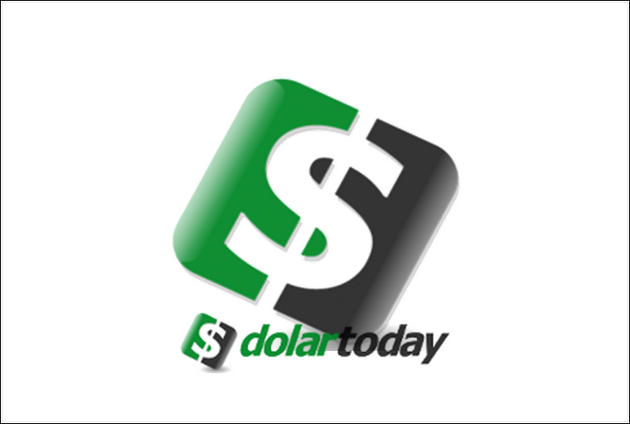
This page is taken as reference for the arbitration between bolivars and dollars in the Colombian city of Cúcuta and its impact on Venezuelan society is so high that Nicolás Maduro himself calls it "the criminal dollar."
Beyond what it is called, the most striking and worrying thing is that in the last nine days its price doubled, going from 8,950 bolivars to the current 16,500.
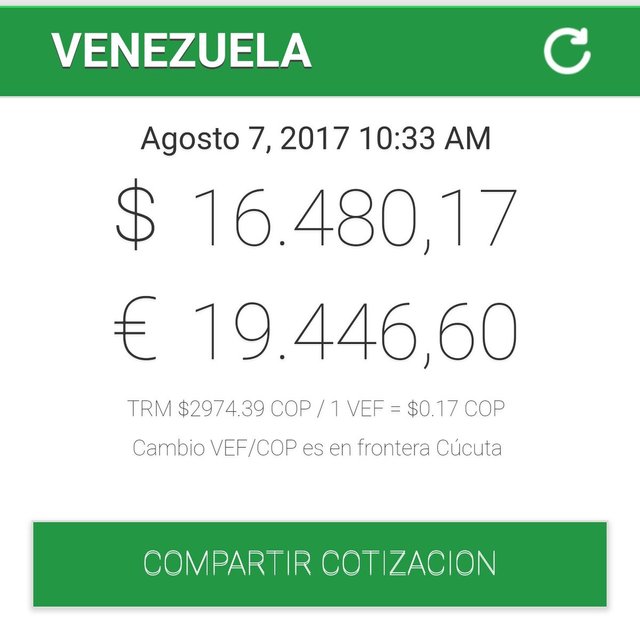
With this new mark, the marginal dollar price has increased so far this year by no less than 470% and nothing indicates that it can find a ceiling in the short term, at least according to the vision of local experts.
Opposition analysts unanimously believe that the reason for their steepness is due to the negative perspectives that remain over the country's near future, which permanently pressures the demand for the dollar in the only market that works as such.
All this as a direct consequence of price and exchange controls, monetary expansion aimed at solving a fiscal deficit that targets 17% of GDP this year and an increasingly conflictive political environment.
This last escalation occurs although since June there is a new system of allocation of foreign exchange, whose main objective is curiously to defeat the marginal dollar.
According to economist Aurelio Concheso, the unstoppable flight of the parallel dollar responds to obvious reasons, such as "the structural intrinsic unfeasibility of a system of multiple changes, and the persistent temptation to keep official exchange overvalued in vain attempt to convey a sense of well-being to the population".
"But there is a fundamental reason that is becoming acuter every day and is none other than the degree of increasing lack of control, regarding the printing of money without support," adds Concheso.
In this auction mechanism, the dollar trades at a price below 3,000 bolívares, which is substantially higher than the one destined to import food and medicines, which remains at 10 Bolivars per dollar.
This is compounded by an insufficient supply on the part of the Central Bank, due to the lower revenues from the sale of oil, which contributes 96% of the currencies in Venezuela.
The reduction of oil income in this import-dependent country has accentuated the scarcity of basic goods, in a context in which many entrepreneurs are forced to import with black market dollars.
At the price of the parallel, the minimum income of Venezuelans is equivalent to 11 dollars, when only one kilo of rice costs half a dollar.
However, the government attributes the escalation to an "economic war" of the opposition and US-backed businessmen to overthrow it.
Faced with a scenario that is increasingly complicated, economist Luis Oliveros warns that in addition to the threat posed by the National Constituent Assembly, the situation is aggravated by the delicate situation that PDVSA is experiencing, as a result of the fall in oil production, which in his view will be the most important thing: US sanctions. Against Venezuela.
"If that happens, what we've seen is nothing compared to what could happen," argues Concheso.
The government's reaction
Nicolás Maduro ordered last Thursday to the Minister of Interior and Justice Néstor Reverol to stop all the people who sell the products based on the price that reflects the page Dollar Today.
"I have instructed Minister Reverol to detain anyone who intends to speculate and raise prices to the people in an abusive and criminal manner based on Dollar Today."
He said that at the beginning of the constituent stage that a hard battle should be given against the speculators who set prices with the parallel dollar.
In that sense, the president questioned that producing and buying products in Venezuela are wanted to sell to the people at the "criminal and terrorist dollar price of Miami." In that sense, he asserted that "we will not allow it, tough hand, iron hand. Go with everything we got against the oligarchy."
He warned that there are supermarkets selling products at the parallel dollar price.
The problem of debt
Venezuela's debt amounts to nearly US $ S90 billion, That in the next three years, which is the remaining period of the presidency of Maduro - from 2013 to 2019 - wins 13% of the total, which implies Maturities of $ 11.6 billion.
All this boosts the yield required to the Venezuelan bond, shot up to 78%, 55 percentage points more than January 1, when it was at 23%.
In addition, the three largest rating agencies - Moody's, S & P and Fitch - hold Venezuelan debt as a junk bond, ranking lowest in the case of the first two.
Given the seriousness of the situation, the Venezuelan economy is in a limit situation and the foreseeable consequence is the risk of the country incurring a default on its debt.
That is why it triggered the cost of insurance that is paid by investors to cover the risk involved in having Venezuelan debt portfolio.
This is reflected in the Credit Default Swap (CDS) of Nicolas Maduro's country, which currently stands at 5,000 points, for the first time since May last year, when two months ago they were at 3,000 points.
This score means that for each insurance of default that is contracted must pay 50% of the total amount. Put in another way, right now for every $ 10 million you want to ensure you must pay 5 million.
A quick comparison with other countries in the region, such as Brazil and Argentina, shows that in these cases the cost of insurance is 200 and 340 points, respectively; While for the US case. Are paid 29 points, and for the UK 18 units, despite the Brexit.
Venezuela's CDS are the most expensive in the world since 2014, peaking in March 2016 when protests against the Bolivarian regime intensified and its non-payment insurance rose to over 10,000 points.
Now, it is impossible to think that this situation is exclusive of the central administration and that it has not extended to the different strata of the Government. This is the specific case of the main state-owned company, Petróleos de Venezuela or PDVSA.
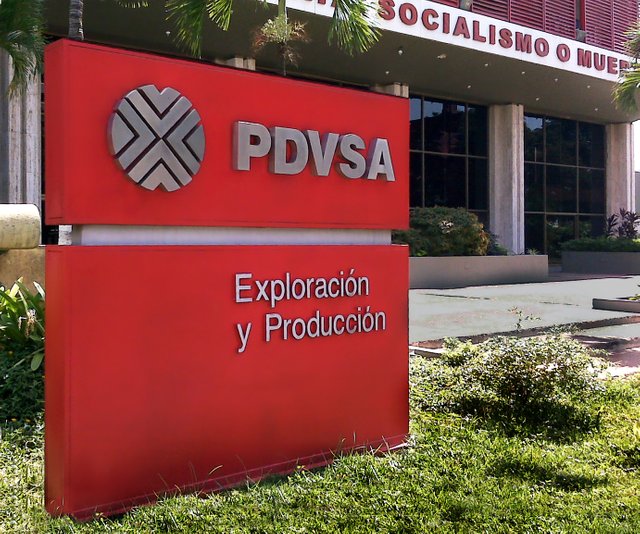
"The company is the perfect example of the seven lives a cat has, but who is counting on them?" Asks Jaimin Patel, a Bloomberg industry expert, who questions how he "has been able to Years of finding unsuspected paths to meet their debt maturities. "
A proof of the seriousness of the situation facing the oil company is that it was forced to delay the "issuance of financial statements by the auditors of KPMG," the firm that has delegated for years that task, as it arises Of a letter sent to the New York office of MUFG Union Bank.
The Japanese-based bank distributed the letter dated July 21 to holders of bonds due in 2020 to approve the exception request.
According to the document, investors must grant permission to prevent the delay in the provision of financial information being considered a "breach", as reading in the bank's notice.
The Venezuelan company explained in the letter sent to the US bank that the failure to disclose its audited financial results was due to the "complexity" of its operations and to additional revisions to the reports of previous years, which it assures do not affect its finances.
The process begins weeks after Venezuela's top state-owned company postponed telephone conferences with its investors pending the release of these results, IFR reported.
The unusual request comes on the heels of growing fears that PDVSA will default on debt payments by some $ 3 billion by the end of the year. If US threats to apply economic sanctions to the Socialist government materialize.
But Venezuela is still the country with the largest oil reserves in the world, although this has not prevented its president from winning enemies as unsuitable as the United States, which refines a third of the crude oil it produces.
@jonsnow1983

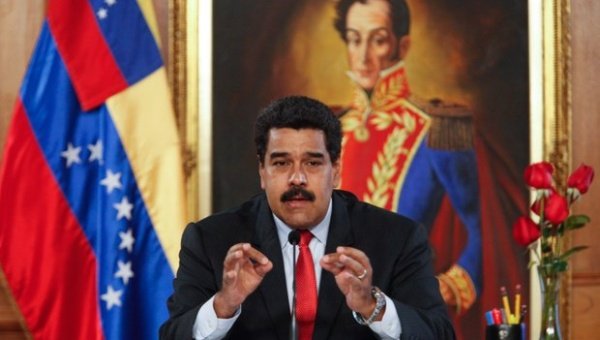
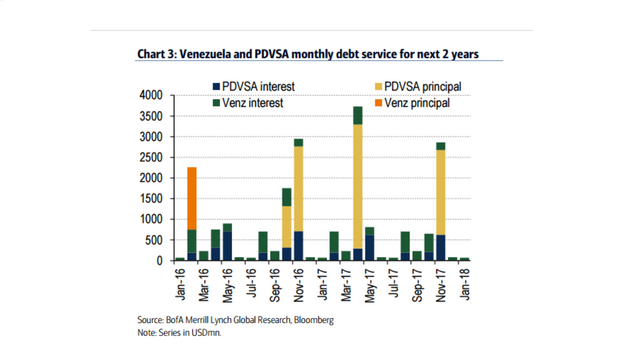
If i was Venezuelan i would buy a bitcoincent
There is a low percentage of us that are saving money in BTC to protect our earnings from inflation. Thing is we are a Third World Country and most of Venezuelans Don't know or aren't well informed about BTC.
yes. I am watching in agony to whats happening to you're country . I hope you found a way to keep alive and well. getting into cryptos is a risk, but i think it's the future and i think it is more risky to stay in fiat. We don't see a lot of what is happening over there but i can only imagine how it must feel to see your money devalue like that. Best of luck to you and your brothers.
This post has received a 0.63 % upvote from @drotto thanks to: @banjo.
Thank you, @jonsnow1983, for this insight into what's happening in your country. Please continue to report on what you see going on there.
😄😇😄

I've Re-Steemed this hoping more people will read it!
https://steemit.com/politics/@jonsnow1983/what-lies-behind-the-new-us-sanctions-on-venezuela hello mate! this is my last article about our situation, Check it out! cheers!
Thanks a lot mate! I really appreciate it!
I appreciate that you let me know about your latest article...
Thank you, friend, for continuing to report your perspectives from within your country. Much appreciated! As always, I wish you the best...
😄😇😄

Very good write up @jonsnow1983 - I feel sorry for all those Venezuelans that are pro-liberty and against the criminals in charge.
You have my support and follow
Thanks a lot pal! I'm gettingonthetrain because I'm looking forward to learn about personal finance, and I love Videogames!!! Cheers!
Thanks for taking the time to explain just whats going on there. This post alone has explained more to me than all other reports put together.
I'm of the mindset that most problems are external, just by the fact the Government controls fuel and the prices are dirt cheap there. So if the Government is as bad as stated, why not make gasoline un attainable too? cutting off the people ability to get around.
Just my 2 cents worth.
Thanks again